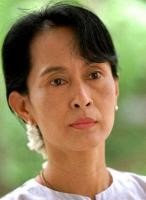The recent release of Burmese democracy icon Aung San Suu Kyi could produce, as a ripple effect, a shift in the relationship between Burma and the U.S.
Suu Kyi has stated that she intends to pursue reconciliation with the junta. This, in turn, could suit Washington's softening stance toward the regime and the Obama administration's stated preference for alternative policies in dealing with Burma.
Suu Kyi's decision is dictated by the reality on the ground. Her National League for Democracy party (NLD), which won 1990 elections that were never recognized domestically, was disbanded after it boycotted the November 2010 parliamentary elections. Those polls resulted in the junta-backed Union Solidarity and Development Party (USDP) gaining a majority in the two national legislative chambers. The National Democratic Front (NDF) -- an independent offshoot of the NLD -- is to be the largest opposition party in the upcoming parliament, with 16 out of 161 representatives. Twenty-five percent of the seats in the chambers are set aside for representatives of the military.

